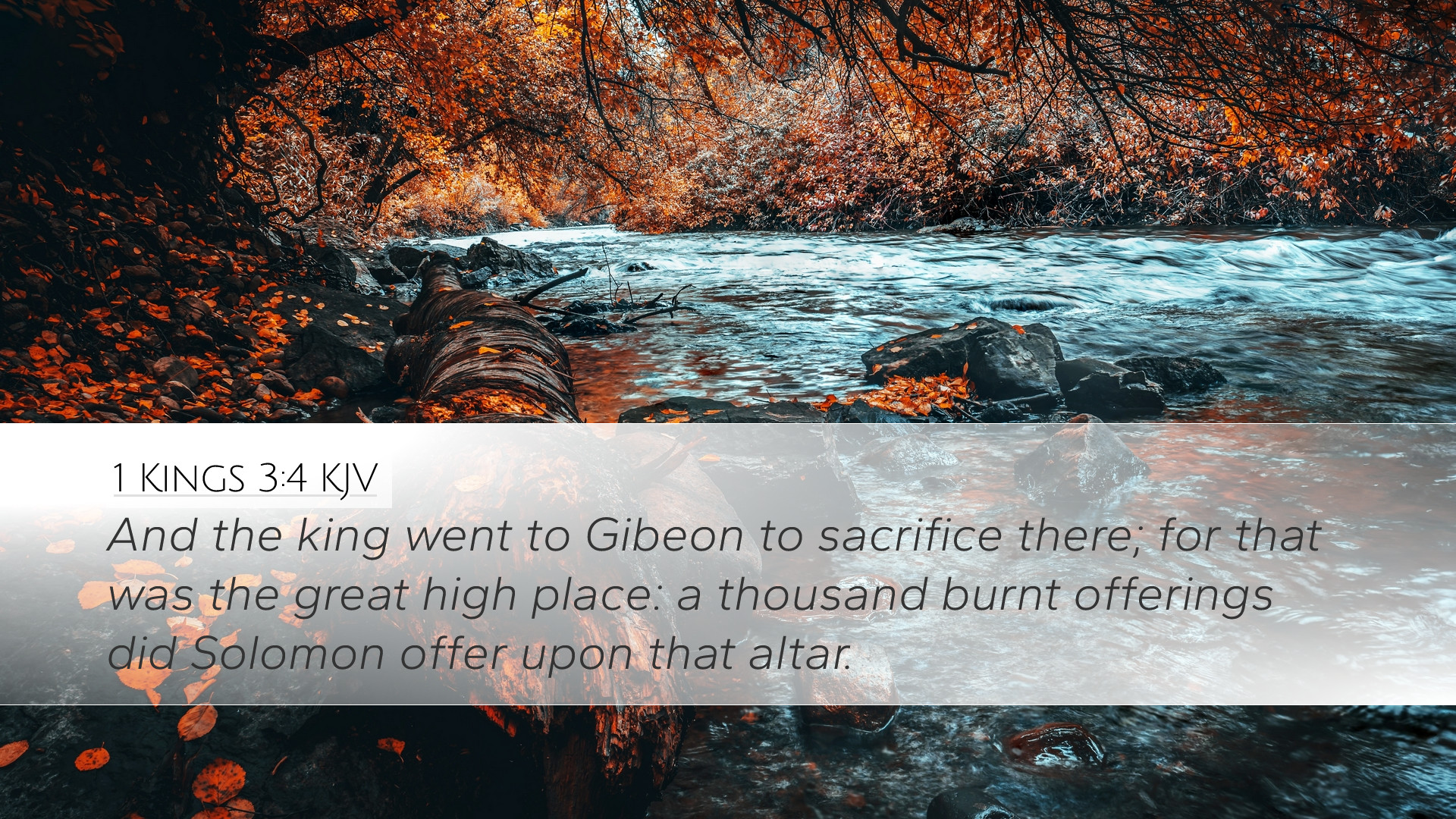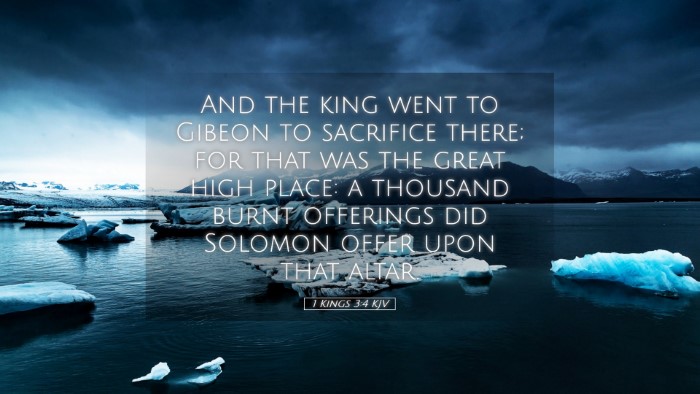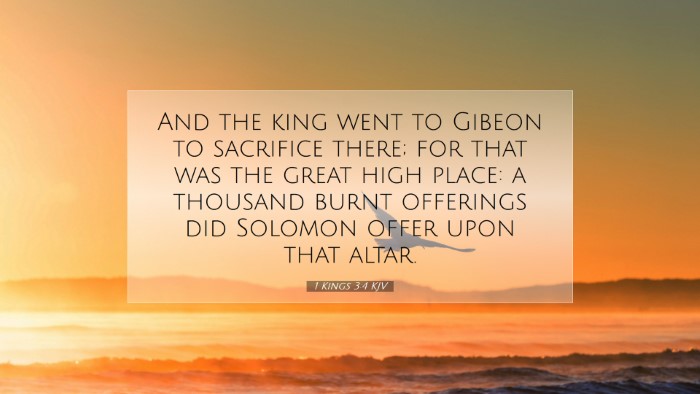Commentary on 1 Kings 3:4
Verse Context: 1 Kings 3:4 states, "And the king went to Gibeon to sacrifice there; for that was the great high place: a thousand burnt offerings did Solomon offer upon that altar." This verse marks a significant moment in Solomon's reign, establishing both his devotion and the foundation of his future wisdom.
Introduction
This commentary seeks to delve into the rich theological implications and historical context surrounding Solomon's action at Gibeon. Using insights from established public domain commentaries, we approach this text not only as historians but as theologians, seeking to understand its layered meanings.
The Significance of Gibeon
Matthew Henry notes that Gibeon was renowned for its high place of worship. It was one of the last remaining sites where worship of Yahweh was conducted outside the temple, which had not yet been built. This site represents a transitional phase in Israel's worship practices, shifting from localized shrines to a centralized temple worship in Jerusalem.
Albert Barnes emphasizes that Gibeon held historical significance, having been a city of the Gibeonites, who, despite their initial deception (Joshua 9), found favor within Israel's history. Solomon's choice to sacrifice there highlights a continuation of Israel's complex history and covenantal promises.
Solomon’s Offerings
Solomon's offering of "a thousand burnt offerings" is noted by Adam Clarke as an extravagant and generous act that underscores his desire to honor God. Clarke suggests that such offerings were a demonstration of Solomon's wealth but also an acknowledgment of his need for divine favor and wisdom at the onset of his kingship.
-
Spiritual Dedication: Solomon's actions can be interpreted as an expression of deep piety and a recognition of his dependency on God for guidance in ruling His people.
-
Symbolism of Offers: The burnt offerings symbolize total surrender to God, indicating Solomon’s desire not just for wisdom, but for a heart aligned with God's will.
Theological Implications
At the heart of this passage is the dynamic relationship between divine favor and human action. Henry explains that Solomon's worship was an integral part of his preparation for leadership; he understood that to govern justly, he must first cultivate a relationship with God through worship.
Principles of Leadership
In the context of leadership, Solomon's visit to Gibeon offers several lessons:
-
Humility: Recognizing his limitations and seeking wisdom from God reflects a leader's humility and the understanding that one cannot lead effectively without divine insight.
-
Prioritizing Worship: Before making critical decisions, Solomon prioritized worship, indicating that a leader's spiritual health directly impacts their effectiveness.
Interpretations of Wisdom
This narrative transitions into the subsequent request for wisdom that Solomon makes in Gibeon. Barnes notes that the wisdom Solomon seeks is not mere knowledge or intelligence; it is a moral and ethical clarity enabling him to lead the people righteously.
Seek First the Kingdom
The theological weight of seeking wisdom before riches or power resonates deeply with New Testament teachings such as Matthew 6:33. Solomon’s heart-oriented quest serves as a model for believers and leaders alike in prioritizing spiritual goals over earthly gains.
Application for Today’s Readers
For contemporary pastors, theologians, and students, this verse serves as a reminder of the necessity of earnest worship in preparing for significant tasks or responsibilities.
-
Regular Worship: Establishing a rhythm of worship prepares leaders to encounter God and receive His guidance.
-
Worshipful Heart: Leaders must cultivate a worshipful heart that prioritizes God’s perspective in all decision-making processes.
-
Commitment to God’s Will: The offering signifies a commitment that should mirror our own: total surrender to God's will and purpose for our lives and ministries.
Conclusion
In summary, 1 Kings 3:4 encapsulates profound truths about worship, leadership, and the pursuit of wisdom. As Solomon dedicated himself to God through offerings at Gibeon, he set an important precedent for future generations. The text mandates both self-examination and commitment to divine guidance. May today’s leaders, scholars, and students draw inspiration from Solomon’s example, prioritizing connection with God through worship in all endeavors.


